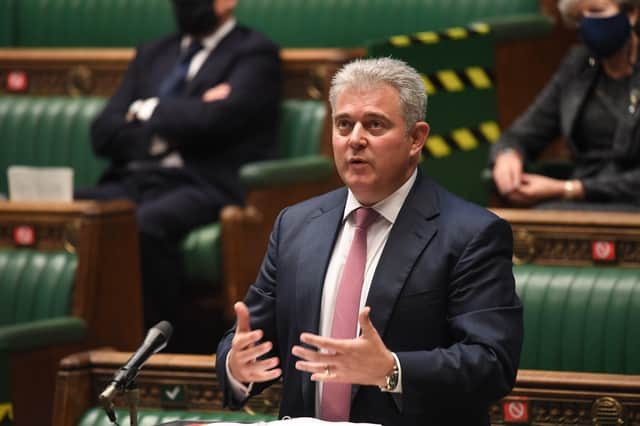Troubles amnesty: Legal challenge to government plans fails


Patricia Burns and Daniel McCready were seeking to judicially review plans which would also end legacy-related civil litigation and inquests.
Their lawyers claimed the intended amnesty represents an unconstitutional attack on the rule of law.
Advertisement
Hide AdAdvertisement
Hide AdWith Secretary of State Brandon Lewis expected to table a Bill in Parliament next month, a judge was urged to make advisory declarations on the lawfulness of the proposals.
But Mr Justice Colton refused leave to seek a judicial review into potential legislation which he pointed out does not yet exist. He ruled today: “I consider the challenge is unarguable and constitutionally impermissible.”
Ms Burns’ father, former Royal Navy sailor Thomas Burns, was shot by the Army outside Glenpark Social Club in north Belfast in July 1972.
Northern Ireland’s Attorney General has denied a fresh inquest into his death, despite flaws in the original tribunal.
Advertisement
Hide AdAdvertisement
Hide AdMr McCready’s uncle, Jim McCann, was among six men allegedly killed by soldiers in the New Lodge area of the city in February 1973.
In a statement at the time the Army claimed they had been shot during a gun battle, but no weapons were recovered. Earlier this year the Attorney General ordered a new inquest into the deaths of the men, known as the New Lodge Six.
The legal challenge centred on a command paper published in July, outlining the Government’s intention to prohibit future prosecutions of military veterans and ex-paramilitaries for Troubles incidents predating April 1998.
Counsel for the two bereaved relatives told the court it also involves the unqualified, unconditional halting of inquests and civil actions.
Advertisement
Hide AdAdvertisement
Hide AdEven though the exact terms of the legislation remain unknown, Barry Macdonald QC insisted the intention behind it is clear. “What is proposed is a blanket ban on the judiciary dealing with any matters concerning the Troubles - including proceedings that are already before the court, and perhaps even at hearing,” he said.
“This is so inimical to the rule of law that these are now the kind of exceptional circumstances in which the courts should refuse to give effect to any statute that may purport to bring this state of affairs about.”
Mr Macdonald argued that an advisory judgment was needed before Parliament debates the anticipated Bill.
“It is necessary here for the court to declare what the existing law is in relation to the question of whether or not it is possible for Parliament to legislate in such a manner that is being proposed,” he added.
Advertisement
Hide AdAdvertisement
Hide AdTony McGleenan QC, for the Secretary of State, countered that a challenge to proposals likely to undergo revision should be rejected.
“Whatever form the Bill finally takes, it’s unlikely to replicate every feature of the command paper,” he said.
“We are guessing about what a future law might be. That is fatal to this application.”
Backing those submissions, Mr Justice Colton observed that the proposals have no legal force.
Advertisement
Hide AdAdvertisement
Hide Ad“The court is being asked to conduct a review of the legality of potential legislation that does not yet exist,” he said.
“To do so would be inappropriate in my view, and would ultimately involve the court intervening and assessing the issues upon which the Secretary of State is currently consulting.”
Dismissing the case, the judge held that it would be wrong to offer judicial advice on the anticipated Bill.
He stated: “It is for Parliament to scrutinise any draft legislation proposed, and would be constitutionally inappropriate for this court to advise on or interfere with that process.”